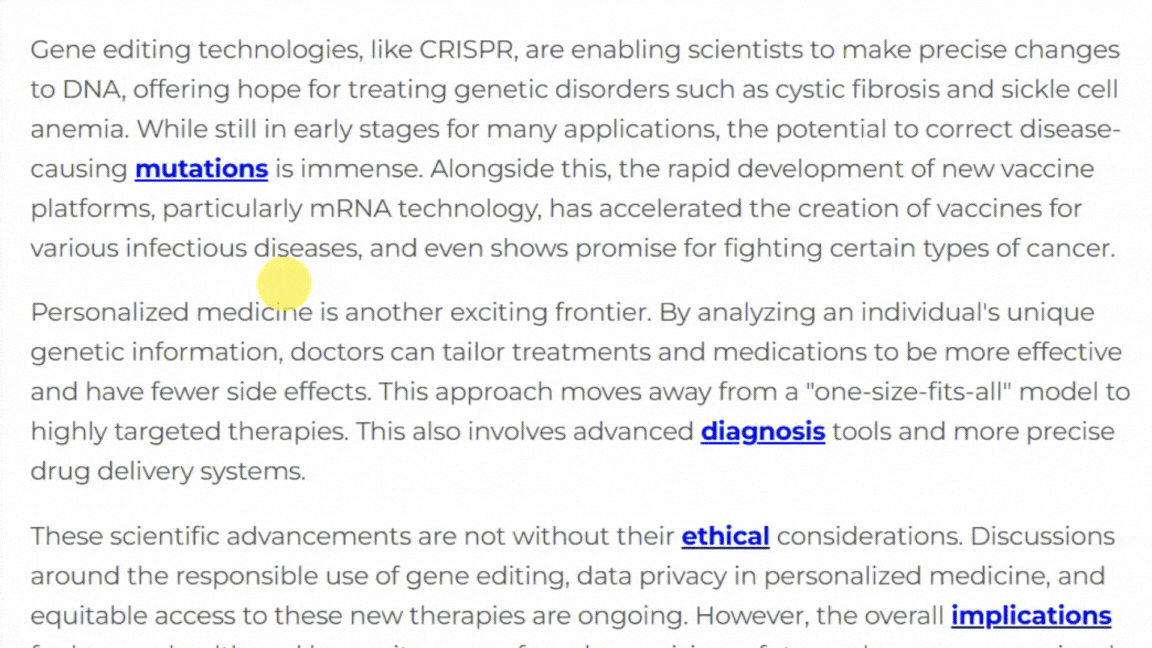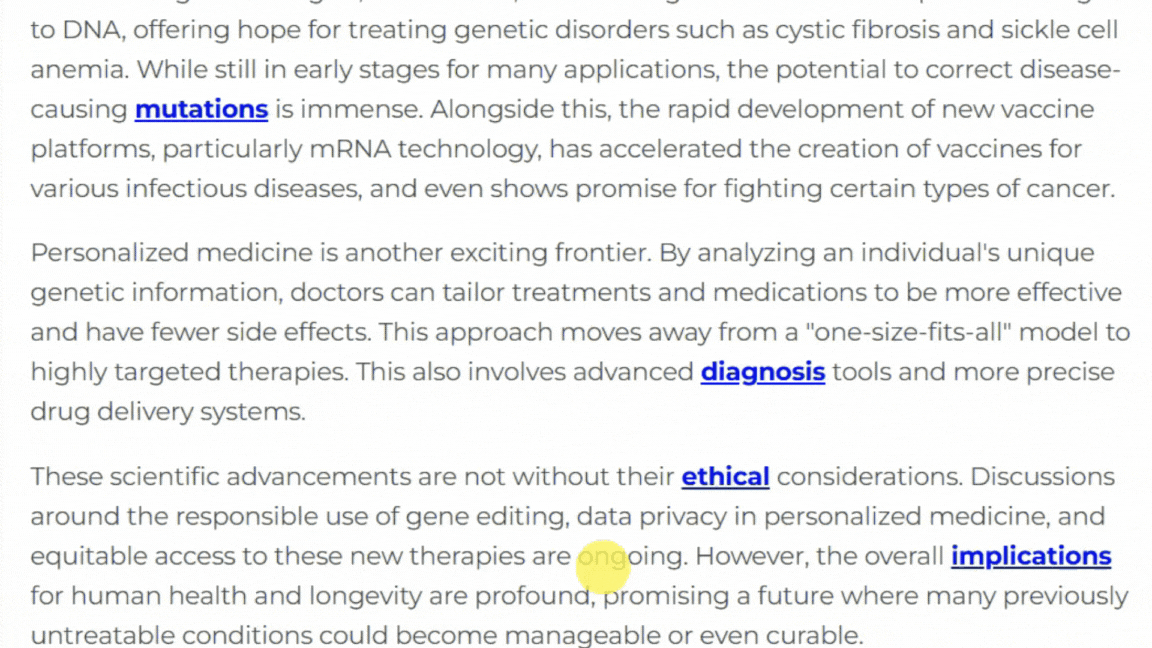Amber Talk
Enhance Your Conversation
- Login
- / Sign Up
Amber Talk
Enhance Your Conversation

Improve Your English Skills
Please enter your email to get more information on how to improve your English skills and to continue with the Article.

Personalized Medicine
News Audio Player
News Audio Player
Scroll Down For Speaking Practice
The field of healthcare is undergoing a profound transformation with the advent of personalized medicine. This innovative approach moves beyond a one-size-fits-all model, instead tailoring treatments to an individual's unique genetic makeup. By analyzing a person's DNA sequence, doctors can gain insights into their specific disease risks, how they might respond to certain medications, and even their susceptibility to various conditions. This is truly revolutionizing healthcare.
At the core of personalized medicine is advanced genomic sequencing, which maps an individual's entire genetic code. This information, combined with data on lifestyle and environment, allows for highly customized therapies. For example, in cancer treatment, doctors can identify specific genetic mutations in a tumor and select targeted drugs that are most likely to be effective, minimizing side effects and improving outcomes. This approach also holds immense promise for disease prevention, allowing for early interventions.
Pharmacogenomics, a key branch of personalized medicine, focuses on how genes affect a person's response to drugs. This helps doctors prescribe the right medication at the right dose, avoiding ineffective treatments or adverse reactions. Beyond drug selection, personalized medicine is also impacting diagnostics, leading to more precise and earlier detection of illnesses.
While the potential benefits are vast, there are important ethical implications to consider, such as data privacy and equitable access to these advanced treatments. Ensuring that personalized medicine is accessible to all, regardless of socioeconomic status, is a significant challenge. However, ongoing research and technological advancements continue to push the boundaries, promising a future where medical care is truly tailored to each unique individual.
Let's Talk About It!
- 1. How do you feel about doctors using your genetic information to plan your healthcare?
- 2. What are the biggest advantages of personalized medicine compared to traditional treatments?
- 3. Do you think personalized medicine will be available to everyone, or only a few? Why?
- 4. How might personalized medicine change how we prevent diseases in the future?
- 5. What privacy concerns might arise when sharing your genetic data with healthcare providers?
- 6. How could personalized medicine impact the cost of healthcare?
- 7. What role do you think lifestyle choices will still play in health, even with personalized medicine?
- 8. Should genetic testing be mandatory for everyone to advance personalized medicine? Why or why not?
- 9. How might personalized medicine change the way new drugs are developed?
- 10. What is one ethical challenge that personalized medicine needs to address?
Article Vocabulary Instructions
Click to Enlarge

Click to Enlarge
